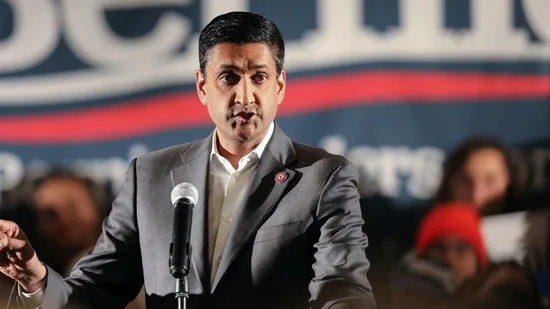The US House of Representatives on Thursday, approved an amendment by Congressman Ro Khanna, proposing the deepening of defence ties between India and the United States.
The amendment was approved with a resounding majority to the National Defence Authorization Act highlighting China’s threat to India’s security, and an India-specific waiver under the Countering America’s Adversaries Through Sanctions Act (CAATSA).
The House voted 330 to 99 in favour of the amendment. This is not yet part of the official Act as the amendment must be passed by both the House and the Senate—the different versions passed in the two chambers will then be reconciled in compromise legislation.
Support for the Indian-American Democrat’s amendment is seen as a signal of political support for the India-US strategic partnership on Capitol Hill.
Enacted by the US in 2017, CAATSA provides for punitive actions against any country engaged in transactions with Russian defence and intelligence sectors.
CAATSA became a prick in India-US ties after India made a deal with Russia to secure the S-400 missile defence system, in the midst of the Russia-Ukraine war. The US had been deciding whether to apply or waive sanctions on India over the deal.
“The United States must stand with India in the face of escalating aggression from China. As Vice Chair of the India Caucus, I have been working to strengthen the partnership between our countries and ensure that India can defend itself along the Indian Chinese border,” said Khanna.
The Indian-American Congressman’s amendment had four sub-sections. The first section said that “a strong United States-India defence partnership, rooted in shared democratic values, is critical in order to advance United States interests in the Indo-Pacific region.
In the second sub-head of the amendment, Khanna talked about the United States-India initiative on critical and emerging technologies (ICET), stating that the endeavour is an important step in developing closer partnerships between governments, academia, and industry in the United States and India in order to address the latest advances in artificial intelligence, quantum computing, biotechnology, aerospace, and semiconductor manufacturing.
The amendment also had a different sub-head for border threats from China and reliance on Russian-built weapons. Under the category, Khanna said, “India faces immediate and serious regional border threats from China, with continued military aggression by the Government of China along the India-China border.”
In the final sub-heading, Khanna stated that the waiver of sanctions will be in the best interests of the defence partnership between India and the United States.
Must Read: Viral Video: Whale Tricks Fish into Becoming its Prey
Keep watching our YouTube Channel ‘DNP INDIA’. Also, please subscribe and follow us on FACEBOOK, INSTAGRAM, and TWITTER.


